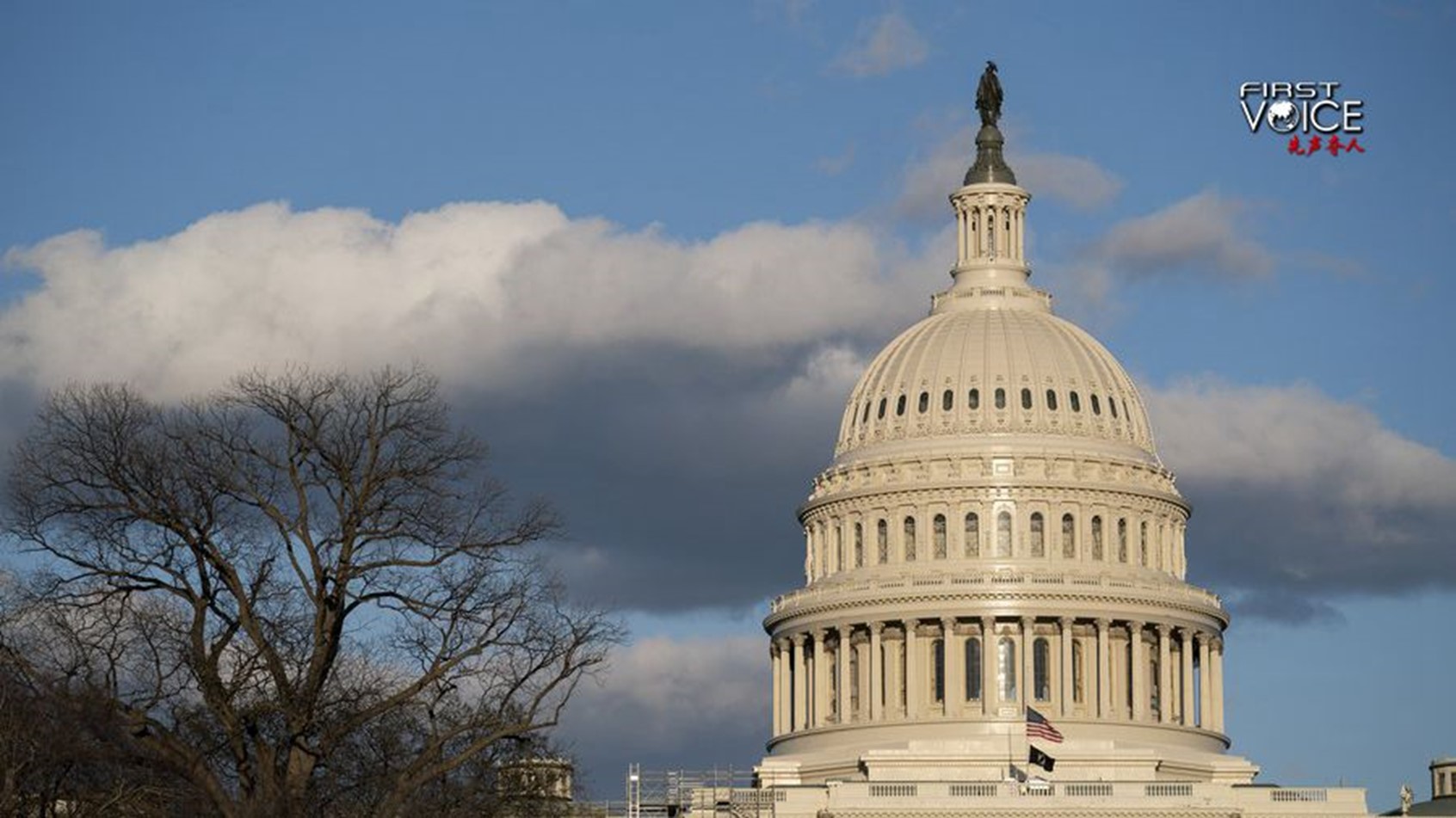
The Capitol building in Washington, D.C., the United States. [Photo/Xinhua]
Editor's note: CGTN's First Voice provides instant commentary on breaking stories. The column clarifies emerging issues and better defines the news agenda, offering a Chinese perspective on the latest global events.
By Anthony Moretti
The United States has again inflamed tensions with China on the Taiwan question. Unfortunately, China-U.S. relations continue to suffer because of provocative actions and language by the Americans. Moreover, each time the U.S. does something to rile up the Chinese mainland and the Taiwan region, it risks becoming the catalyst that starts a crisis it might not be able to contain.
The irony should not be lost: The U.S. steadfastly defends its territorial integrity but sees nothing wrong with challenging another nation's concerns about its own sovereignty and geographic legitimacy.
In the 1860s, the U.S. fought a four-year war and multiple U.S. presidents have spoken either about the horror of the Civil War or war in general. A few examples:
During the vice presidential debate in 2012, Joe Biden said war "should always be the absolute last resort."
Ronald Reagan, in 1983, spoke of "transcending the moral evils of our past," adding that "we must never go back."
During one of his speeches as president, James Buchanan said in 1860, "Our union rests upon public opinion, and can never be cemented by the blood of its citizens shed in Civil War."
Finally, Ulysses S. Grant, who rose to fame commanding the Union Army in the Civil War and later who became President of the United States, said in 1885, "I have never felt any sort of fondness for war, and I have never advocated it, except as a means of peace."
Knowing the gravity of war, American leaders would seemingly want to think twice about raising the temperature on cross-strait relations. And yet, they continue to do the opposite.
The United States regularly announces that it does not want to undermine the one-China principle, which it agreed to in 1972 and which recognizes that Taiwan is part of China. And yet, time and time again it does or says something that puts that promise into question. Worse, each unnecessary act increases the risk of conflict.
In the most recent flare-up, which took place over the past few days, the U.S. authorized the plane carrying Taiwan's leader to land on American soil. At Washington's arrangements, Lai also becomes the first Taiwan regional leader to enter Guam's Legislature.
Though the U.S. characterized Lai's stay in Hawaii and Guam as merely a "stopover," the decision created a furious reaction from the Chinese mainland.
Chinese Foreign Ministry quickly reminded Washington that it must handle all matters relating to the Taiwan question with utmost caution, clearly opposing Taiwan independence and supporting China's peaceful reunification.
With this goal in mind, China refuses to accept any interaction between the Taiwan region and the United States that would give the impression Washington is injecting itself into the Taiwan question or creating doubt about China's legitimate authority over the Taiwan region. The U.S. response, though these words are not formally stated, is "We will do what we want."
Although Washington has been trying to downplay Lai's trip, noting as just one example that there was no U.S. government official at the Honolulu airport when he landed, there was no way to brush off a 20-minute conversation Lai had with former U.S. House Speaker Nancy Pelosi.
Lai and Pelosi discussed "military threats" from the Chinese mainland, according to media reports. Later, at a dinner, Lai told his audience that "we have to fight, fight together to prevent war." Taiwan anticipates that the U.S. will come to Taiwan's aid should there be any conflict in the region.
Related to this, on the eve of Lai's departure from Taiwan, the U.S. completed a $385 million deal that will deliver weapons, radar and communications equipment to the island.
That deal and Lai's "stopover" appear completely inconsistent with America's public commitment to endorsing the one-China principle.
U.S. presidents' admonition that those who cause war have to "justify what was done" echoes greatly.
The author Anthony Moretti is an associate professor at the Department of Communication and Organizational Leadership at Robert Morris University in the U.S.

 中文
中文



